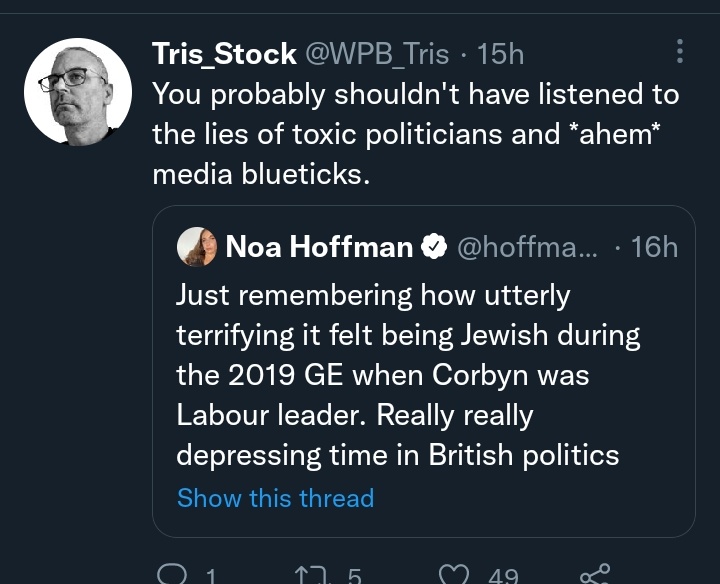
Most minorities: I feel afraid and victimised
The Left: I'm sorry to hear that, let us help
Jew: I feel afraid and victimised
The Left: let me explain why you are wrong
(Read comments)
The Left: I'm sorry to hear that, let us help
Jew: I feel afraid and victimised
The Left: let me explain why you are wrong
(Read comments)
https://twitter.com/SiamGoorwich/status/1551198211406282755
"Ah sorry no. You only think antisemitism is real because you are an idiot and have fallen for a global media conspiracy"
Oh wait
Oh wait

• • •
Missing some Tweet in this thread? You can try to
force a refresh













